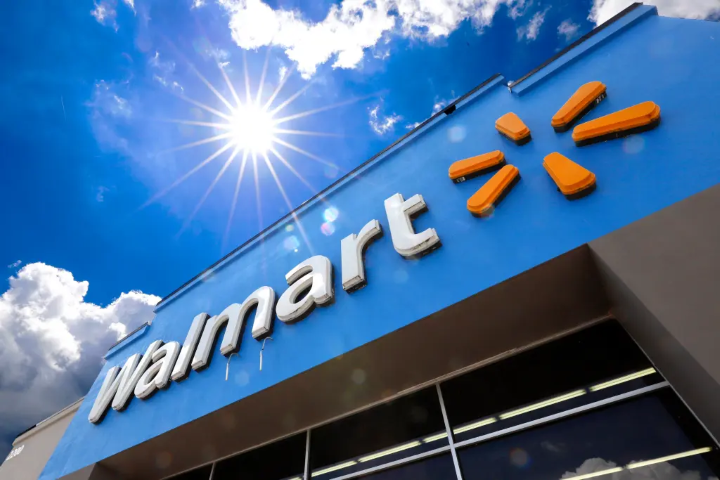
Walmart considers purchasing Vizio, a leading smart TV manufacturer, in a deal worth over $2 billion, aiming to expand its advertising reach and market share. (AP)
Walmart is reportedly in negotiations to acquire Vizio, a prominent smart TV manufacturer, for over $2 billion, as revealed by the Wall Street Journal on Tuesday. This potential move could significantly strengthen Walmart's advertising arm and potentially grant it control over more than 20% of the US television market.
Following this news, Vizio's stock experienced a notable surge, closing up by 24.6% on Tuesday, momentarily peaking at a 36% increase, marking its highest point since November 2022. Conversely, Walmart's shares saw a slight dip of about 1%. The reported offer exceeds Vizio's market capitalization by nearly 30%, based on Monday's closing figures.
Walmart has been actively exploring avenues to capitalize on its extensive customer base and wealth of shopper data by delving deeper into the advertising sphere. This move aligns with Walmart's strategy of leveraging its various platforms, including its website and in-store assets such as digital displays, connected TVs, and radio, to generate ad revenue.
The potential acquisition of Vizio would not only broaden Walmart's advertising reach but also offer advertisers, such as J.M. Smucker and Kraft Heinz, additional screens to showcase their ads to the millions of weekly visitors at Walmart's 5,000 US stores.
Since its inception in 2021, Walmart's US ad business, known as Connect, has been experiencing robust growth, with sales reaching approximately $3 billion last year, according to Insider Intelligence. Walmart's finance chief has emphasized Connect as a key driver of future profitability, indicating a shift towards revenue from advertising rather than traditional retail sales.
In light of evolving privacy regulations and restrictions on third-party data sharing by tech giants like Apple and Google, retailers' ad businesses, including Walmart's, have become increasingly attractive to advertisers. Retail media networks (RMNs) are projected to generate approximately $60 billion in sales this year, making them the fastest-growing segment of the US ad industry.
Acquiring Vizio would not only grant Walmart access to Vizio's substantial user base of nearly 18 million individuals but also unlock Vizio's lucrative software platform business, which boasts annual advertising revenues growing at an impressive rate of over 27% with a margin rate exceeding 60%, according to analyst Nicholas Zangler.
Vizio's dominant presence in Walmart stores, holding the No. 1 shelf-share position, further underscores the potential synergy between the two entities. With Vizio's strong market presence, Walmart could potentially secure control over 22% of the US TV market, combining its private-label Onn brand with Vizio's offerings.
While both Walmart and Vizio declined to comment on the ongoing negotiations, the potential acquisition poses challenges for competitors like Roku, which has an exclusive deal with Walmart. Roku's shares experienced a decline of about 9% following the news.
Ultimately, the decision regarding the sale will lie with Vizio's CEO, William Wang, who founded the company in 2002 and retains majority voting rights, as highlighted by Zangler. While discussions between Walmart and Vizio are still ongoing, the outcome remains uncertain, and a deal is not guaranteed.















